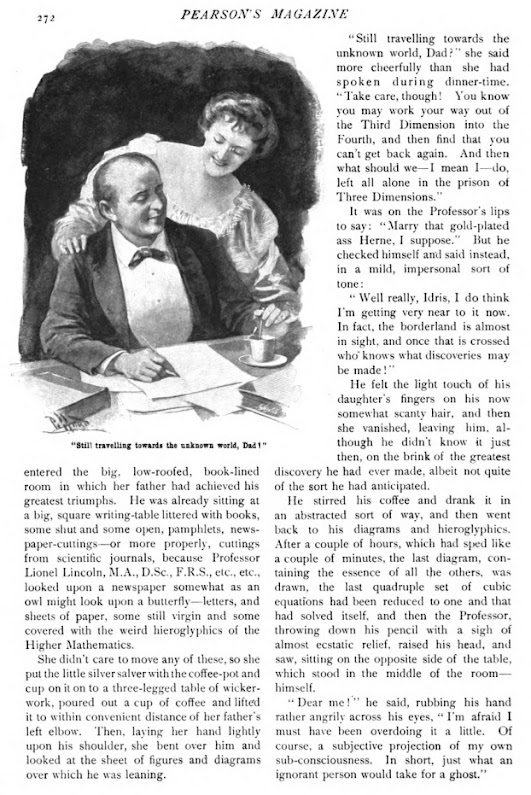Now against the specialist, against the man who studies only art or electricity, or the violin, or the thumbscrew or what not, there is only one really important argument, and that, for some reason or other, is never offered. People say that specialists are inhuman; but that is unjust. People say an expert is not a man; but that is unkind and untrue. The real difficulty about the specialist or expert is much more singular and fascinating. The trouble with the expert is never that he is not a man; it is always that wherever he is not an expert he is too much of an ordinary man. Wherever he is not exceptionally learned he is quite casually ignorant. This is the great fallacy in the case of what is called the impartiality of men of science. If scientific men had no idea beyond their scientific work it might be all very well — that is to say, all very well for everybody except them. But the truth is that, beyond their scientific ideas, they have not the absence of ideas but the presence of the most vulgar and sentimental ideas that happen to be common to their social clique. If a biologist had no views on art and morals it might be all very well. The truth is that the biologist has all the wrong views of art and morals that happen to be going about in the smart set of his time.
This quote by the Edwardian Catholic apologist G.K. Chesterton nicely articulates the central problem in George Chetwyn Griffith's The Conversion of the Professor: A Tale of the Fourth Dimension. Published in the May 1899 edition of Pearson's Magazine, the author of A Honeymoon in Space and The Angel of the Revolution introduces us to a British high society melodrama. Poor Miss Idris Lincoln, B.Sc. wishes to marry Mr. Frederick Herne, a solid, good, and faithful man though not of Miss Lincoln's intellectual caste. Standing between them is her father Professor Lincoln, who is taken with near-religious fervor for eugenic ideas. Humane entreaties of romantic passion hold no sway over the man of genius who adheres to the laws of natural selection as he understands them.
When not occupied with family drama, the esteemed professor's attentions are consumed by calculations which may open up to him the mysteries of the Fourth Dimension, that great unknown beyond our three dimensions. These explorations are oddly mystical... They are opened up not by a machine of some devising, but through symbols and sigils and equations. But by whatever means he achieves the Fourth Dimension, what he learns there will transform his life and the lives of everyone around him.
The full text of The Conversion of the Professor follows, as it was published in Pearson's Magazine. Click on each page for a larger version.
The full text of The Conversion of the Professor follows, as it was published in Pearson's Magazine. Click on each page for a larger version.











No comments:
Post a Comment